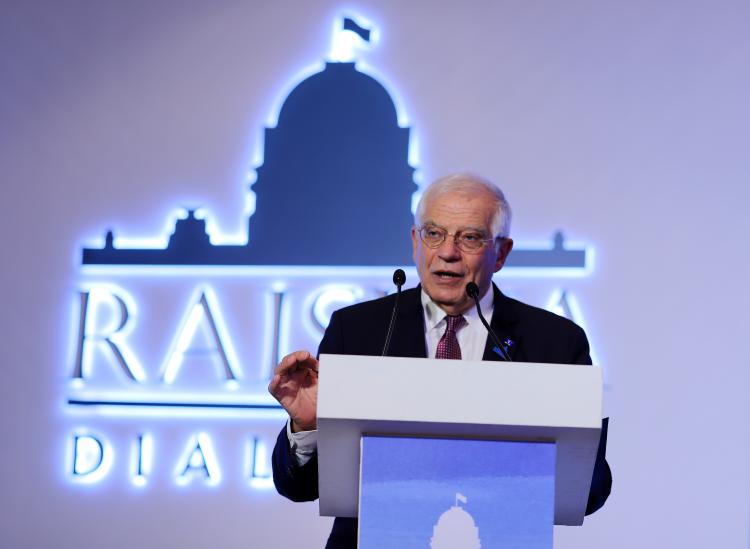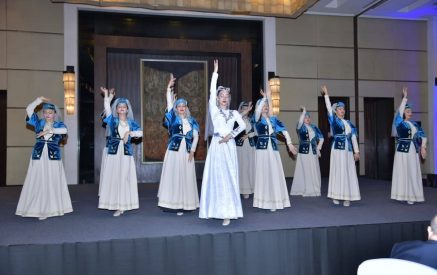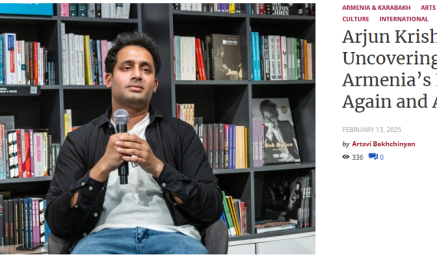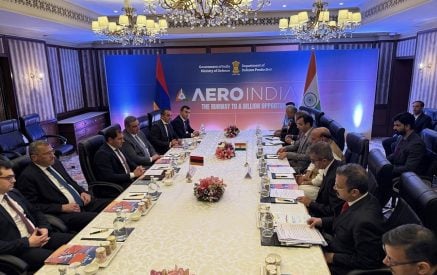The EU and India need each other. In a multipolar world where multilateralism is increasingly under threat, the two world’s largest democracies are both staunch supporters of the rules-based international order and feel the urgency to scale up their strategic partnership. It is in this context that Josep Borrell has travelled to India in his first visit to Asia as EU High Representative.
On Thursday, the EU diplomacy chief was in New Delhi and held bilateral meetings with key international and Indian interlocutors. He also delivered the closing address of the Raisina Dialogue 2020, a high-level conference organised by the Indian Ministry of External Affairs and the Observer Research Foundation since 2016, aimed at addressing the most challenging issues facing the global community. Borrell took the opportunity to reflect on the nature of the European Common Foreign and Security Policy (CFSP): “This is what Europe is all about: pooling sovereignties to regain influence on the world stage. Our unity is our strength. But we have to ask ourselves: pooling our sovereignty to do what? What do we want to achieve? We are a player in search of identity”.
Raisina Dialogue 2020: Debating future frameworks in a disrupted world
“The rules-based international system is being challenged by a logic of power politics, which is more unfair, unpredictable and conflict-prone. […] Europeans are beginning to realise that we have to learn to talk the language of power, if we want to be able to take our destiny in our hands”, the High Representative said in a speech reflecting on the EU’s decisive role in contributing to global peace and security.
Read also
Throughout his speech, Borrell touched upon key priorities for Europe such as the ongoing crises in the wider Middle East; the EU’s commitment to enhance engagement on security and sustainable connectivity in the Indo-Pacific region; and the importance of stronger EU-India cooperation to help revitalise multilateralism.
“How can we prevent power politics from becoming the organising principle of international relations?”, the HR/VP asked the audience rhetorically. Europe´s answer is clear: through multilateral rules. “We, Europeans, cannot accept the idea that the world should organize itself around a new Sino-American bipolarity which would come to replace, after a 30-year transition period, the Soviet-American bipolarity that, literally, divided Europe”, he continued. “On this point, I believe that there is a real political convergence between Europe and many countries of this region. (…) India, Japan, Australia or Viet Nam amongst others share this feeling. That is one of the reasons why it is so important that I am here today to talk about how we can work together”.
Borrell announced the start of negotiations of a new roadmap for EU-India strategic partnership that will cover cooperation in a wide range of areas, from security to digital or climate change. It will be ready for approval in the next summit India-Europe, on 13 March.
Over 2.600 participants gathered in New Delhi for the fifth edition of the Raisina Dialogue to discuss cooperation on a wide range of relevant international policy matters. This year´s overarching theme, ‘Navigating the Alpha Century’, served as the umbrella for a multi-stakeholder, cross-sectoral discussion involving around 600 speakers from 105 countries. Indian Prime Minister Narendra Modi inaugurated the forum, attended by 13 serving foreign ministers –including the Iranian, Mohammad Javad Zarif, and the Russian, Sergey Lavrov- and seven former heads of government, as well as military officers, diplomats and leaders from business, academia and media.
On the margins of the forum, Borrell held bilateral meetings with a number of international and regional counterparts. The HR/VP addressed the main priorities of the EU-India Strategic Partnership with the Minister of External Affairs of India, Subrahmanyam Jaishankar; and met the Minister of Defence Rajnath Singh to discuss EU-India security and defence cooperation.
Borrell also engaged in bilateral encounters with the Minister for Foreign Affairs of the Islamic Republic of Iran, Mohammad Javad Zarif; the Minister for Foreign Affairs of Australia, Marise Payne; the Minister of International Relations and Cooperation of South Africa, Naledi Pandor; and the Minister of Foreign Affairs of the Maldives, Abdulla Shahid.
A future of opportunities for a stronger EU-India cooperation
Climate change
With its new Green Deal, Europe is ready to become carbon neutral by 2050, but that alone is not enough to save the planet: the EU only accounts for 9% of total emissions. The EU-India Clean Energy and Climate Partnership (CECP), agreed in 2016, and the EU alliance with the International Solar Alliance, headquartered in India, can become key tools to ensure the full implementation of the Paris Agreement worldwide.
The multilateral system
On the 75th anniversary of the United Nations, the EU and India share a strong interest in upholding the UN as the central pillar of the multilateral system. In his meetings, the High Representative called to step up concrete cooperation between the two powers, both in New York and Geneva.
Trade
Although the EU and India have not yet concluded a Free Trade Agreement (FTA), both agree on the vital role of the World Trade Organization (WTO) and the need to overcome the crisis of the dispute settlement system. Until a FTA with India can finally become a reality, the EU proposes the negotiation of an Investment Protection Agreement.
Cyber space
Both the EU and India can deepen their cooperation on the common defence of cyber freedoms and the free flow of data. Both powers stand against the current drift towards high-tech ‘de-coupling’, which would end up in a split cyber space with competing systems and standards; and believe in fair competition, based on global standards, for 5G, AI, Big Data and the Internet of Things.
Counter-terrorism
Following up his meeting with the Indian National Security Advisor, Ajit Kumar Doval, the High Representative referred to the importance of EU-India cooperation on counter-terrorism to tackle the growing threat emanating from terrorist networks trying to infiltrate South-East Asian countries.
European Union



























































